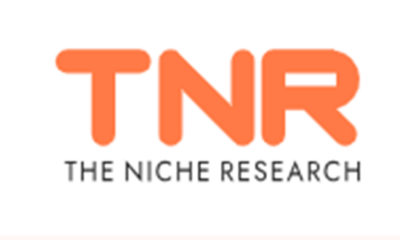Fintech
Nubank’s credit lending strategy: how it works

As Latin America’s largest neobank with more than 100 million customers, Brazilian fintech Nubank, backed by Berkshire Hathaway’s Warren Buffett, has well surpassed the break-even mark, posting profits of more than $1 billion. It now aims to expand further into the credit market, a crucial area largely untapped by Latin American fintechs but critical to maximizing revenue.
In its pursuit of profitability, the institution has diversified its offering of financial products, with a strong focus on expanding its loan portfolio. Given the region’s macroeconomic volatility and high default rates, lending in Latin America is highly dependent on sound risk management.
Boasting a portfolio close to $20 billion, made up mostly of credit card loans and nearly a quarter of personal loans, the bank saw a 52% increase over last year. This increase underlines the bank’s ambitious effort to strengthen its presence in the lending market. CEO and co-founder David Velez highlighted the growth of certain credit segments in Brazil, the bank’s home country, as a key priority for the year.
 David Velez, CEO and co-founder of Nubank.
David Velez, CEO and co-founder of Nubank.
NPL under control
“We know a number of banks that have tried to move in this direction, but then they had to step back because it was just too difficult to do or it just didn’t produce the results they expected,” said Ravi Prakash, who oversees risk management at Nubank. “Fintechs are also in difficulty. I know of almost no fintech company that has really, really cracked the credit business other than Nubank. They are native to technology, but what they don’t have is banking DNA, they take an approach that is too technology-centric.”
Despite facing a challenging macroeconomic landscape, Nubank said it has managed to keep non-performing loan rates below the industry average. In the latest quarter, the company reported a 90-day delinquency rate of 6.3%, compared to 5.5% a year earlier, reflecting the complexities of the Brazilian market.
“When we think about credit underwriting, we aim to combine the best of technology and banking,” said Youssef Lahrech, the company’s COO. We always start from the assumption that the future will be worse than the past. We’re actually designing this business to be durable and resilient over the long term, able to deliver despite the ups and downs of the cycle.”
The Nubank method
Lahrech said in Nu Videocast, a series of internal interviews at Brazil’s neobank, that Nubank’s native digital infrastructure and proprietary technology enable rapid implementation of credit models, offering a significant advantage in speed and cost savings over to traditional banks and fintechs.
The company is pursuing a “low and grow” strategy, reflecting the challenges of lending too quickly in this Latin American market. According to Prakash, customers start with credit limits that gradually increase based on positive payment behavior. “This is a way to broaden our offering and attract segments that we otherwise would not have been able to attract as new customers in a profitable and sustainable way,” she said.
Before significantly expanding its lending offerings into new markets like Mexico, the company plans to conduct tests to gather data and refine its models. This cautious approach aims to ensure preparation for expansion in the coming years.
Nubank, he said, sees high levels of satisfaction among customers who renegotiate their debts. “We actually see that over 50% of our customers in the renegotiation phase are ongoing or less than 15 days past due. It’s good for the customer, it’s good for Nubank,” she said.
The opportunity of Open Finance in Latin America
As Open Finance continues to expand across Latin America, Nubank and similar technology-based lenders are poised for growth. With Brazil leading the implementation and other countries like Chile following suit with implementing legislation, adoption of the framework is gradually spreading across the region.
Nubank executives see Open Finance as an opportunity to offer personalized lending services to their customers. This framework allows financial institutions to share customer financial data with consent, leveling the playing field and challenging traditional banks’ historical advantage built on decades or even centuries of lending data.
“Open Finance will make more data available in the system, and we believe we have a comparative advantage in being able to use that data to design and offer better products, better pricing and greater convenience for customers,” Lahrech said. The idea that consumers have the power to share their data with different industry players and get the best deal for them is incredibly in line with our DNA.”
Fintech
Lloyds and Nationwide invest in Scottish fintech AI Aveni

Lloyds Banking Group and Nationwide have joined an £11m Series A funding round in Scottish artificial intelligence fintech Aveni.
The investment is led by Puma Private Equity with additional participation from Par Equity.
Aveni creates AI products specifically designed to streamline workflows in the financial services industry by analyzing documents and meetings across a range of operational functions, with a focus on financial advisory services and consumer compliance.
The cash injection will help fund the development of a new product, FinLLM, a large-scale language model created specifically for the financial sector in partnership with Lloyds and Nationwide.
Joseph Twigg, CEO of Aveni, explains: “The financial services industry doesn’t need AI models that can quote Shakespeare, it needs AI models that offer transparency, trust and, most importantly, fairness. The way to achieve this is to develop small, highly tuned language models, trained on financial services data, vetted by financial services experts for specific financial services use cases.
“FinLLM’s goal is to set a new standard for the controlled, responsible and ethical adoption of generative AI, outperforming all other generic models in our selected financial services use cases.”
Robin Scher, head of fintech investment at Lloyds Banking Group, says the development programme offers a “massive opportunity” for the financial services industry by streamlining operations and improving customer experience.
“We look forward to supporting Aveni’s growth as we invest in their vision of developing FinLLM together with partners. Our collaboration aims to establish Aveni as a forerunner in AI adoption in the industry, while maintaining a focus on responsible use and customer centricity,” he said.
Fintech
Fairexpay: Risk consultancy White Matter Advisory acquires 90% stake in fintech Fairexpay

Treasury Risk Consulting Firm White Matter Alert On Monday he announced the acquisition of a 90% stake in the fintech startup Fair payment for an undisclosed amount. The acquisition will help White Matter Advisory expand its portfolio in the area of cross-border remittance and fundraising services, a statement said. White Matter Advisory, which operates under the name SaveDesk (White Matter Advisory India Pvt Ltd), is engaged in the treasury risk advisory business. It oversees funds under management (FUM) totaling $8 billion, offering advisory services to a wide range of clients.
Improve your technology skills with high-value skills courses
| IIT Delhi | Data Science and Machine Learning Certificate Program | Visit |
| Indian School of Economics | ISB Product Management | Visit |
| MIT xPRO | MIT Technology Leadership and Innovation | Visit |
White Matter Advisory, based in Bangalore, helps companies navigate the complexities of treasury and risk management.
Fairexpay, authorised by the Reserve Bank of India (RBI) under Cohort 2 of the Liberalised Remittance Scheme (LRS) Regulatory Sandbox, boasts features such as best-in-class exchange rates, 24-hour processing times and full security compliance.
“With this acquisition, White Matter Advisory will leverage Fairexpay’s advanced technology platform and regulatory approvals to enhance its services to its clients,” the release reads.
The integration of Fairexpay’s capabilities should provide White Matter Advisory with a competitive advantage in the cross-border remittance and fundraising market, he added.
The release also states that by integrating Fairexpay’s advanced technology, White Matter Advisory aims to offer seamless and convenient cross-border payment solutions, providing customers with secure options for international money transfers.
Fintech
Rakuten Delays FinTech Business Reorganization to 2025

Rakuten (Japan:4755) has released an update.
Rakuten Group, Inc. and Rakuten Bank, Ltd. announced a delay in the reorganization of Rakuten’s FinTech Business, moving the target date from October 2024 to January 2025. The delay is to allow for a more comprehensive review, taking into account regulatory, shareholder interests and the group’s optimal structure for growth. There are no anticipated changes to Rakuten Bank’s reorganization objectives, structure or listing status outside of the revised timeline.
For more insights on JP:4755 stock, check out TipRanks Stock Analysis Page.
Fintech
White Matter Advisory Acquires 90% Stake in Fintech Startup Fairexpay

You are reading Entrepreneur India, an international franchise of Entrepreneur Media.
White Matter Advisory, which operates under the name SaveDesk in India, has announced that it is acquiring a 90% stake in fintech startup Fairexpay for an undisclosed amount.
This strategic move aims to strengthen White Matter Advisory’s portfolio in cross-border remittance and fundraising services.
By integrating Fairexpay’s advanced technology, White Matter Advisory aims to offer seamless and convenient cross-border payment solutions, providing customers with secure options for international money transfers.
White Matter Advisory, known for its treasury risk advisory services, manages funds under management (FUM) totaling USD 8 billion.
Founded by Bhaskar Saravana, Saurabh Jain, Kranthi Reddy and Piuesh Daga, White Matter Advisory helps companies effectively manage the complexities of treasury and risk management.
The SaveDesk platform offering includes a SaaS-based FX market data platform with real-time feeds for over 100 currencies, bank cost optimization services, customized treasury risk management solutions, and compliance guidance for the Foreign Exchange Management Act (FEMA) and other trade regulations.
Fairexpay is a global aggregation platform offering competitive currency exchange rates from numerous exchange partners worldwide. Catering to both private and corporate customers, Fairexpay provides seamless money transfer solutions for education, travel and immigration, as well as simplifying cross-border payments via API and white-label solutions for businesses. Key features include competitive currency exchange rates, 24-hour processing times, extensive currency coverage of over 30 currencies in more than 200 countries, and secure, RBI-compliant transactions.
-

 DeFi1 year ago
DeFi1 year agoSwitchboard Revolutionizes DeFi with New Oracle Aggregator
-

 News1 year ago
News1 year agoLatest Business News Live Updates Today, July 11, 2024
-

 DeFi1 year ago
DeFi1 year agoIs Zypto Wallet a Reliable Choice for DeFi Users?
-

 DeFi1 year ago
DeFi1 year ago👀 Lido prepares its response to the recovery boom
-

 Fintech1 year ago
Fintech1 year agoFinTech LIVE New York: Mastercard and the Power of Partnership
-

 DeFi1 year ago
DeFi1 year agoEthena downplays danger of letting traders use USDe to back risky bets – DL News
-

 Fintech1 year ago
Fintech1 year ago121 Top Fintech Companies & Startups To Know In 2024
-

 ETFs1 year ago
ETFs1 year agoGold ETFs see first outing after March 2023 at ₹396 cr on profit booking
-

 Fintech1 year ago
Fintech1 year agoFintech unicorn Zeta launches credit as a UPI-linked service for banks
-

 DeFi1 year ago
DeFi1 year agoTON Network Surpasses $200M TVL, Boosted by Open League and DeFi Growth ⋆ ZyCrypto
-

 ETFs1 year ago
ETFs1 year agoLargest US Bank Invests in Spot BTC ETFs While Dimon Remains a Bitcoin Hater ⋆ ZyCrypto
-

 News1 year ago
News1 year agoSalesforce Q1 2025 Earnings Report (CRM)

















